How is implant tooth sick to return a responsibility?
With the great improvement of the success rate of modern dental implant surgery, many people have ignored a problem: implant treatment may also fail because of some biological complications, such as peri-implant mucositis and peri-implant inflammation. As early as the sixth European Symposium on periodontitis in 2008, some scholars defined peri-implant mucositis and peri-implant inflammation as "infectious diseases".
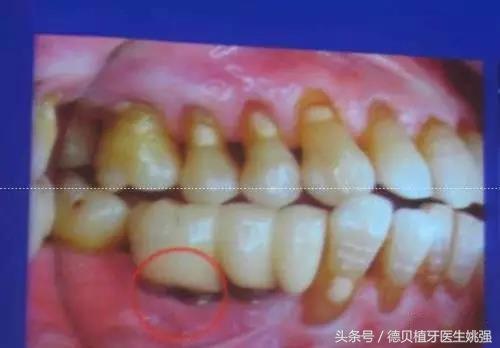
There are a large number of bacteria around the implant, many of which can destroy the tissue around the implant. If they can not be cleaned up, then the excessive growth of pathogenic bacteria will pose a threat to the health of dental implants. In addition, the causes of peri-implant disease are the location and direction of implant teeth, repair design, occlusion and so on, but the main reason is the influence of oral pathogens.
What is peri-implant inflammation?
Peri-implant inflammation is an inflammatory lesion that occurs in the soft and hard tissue around the implant, resulting in the loss of supporting tissue around the implant. It not only has local gingival swelling, bleeding and pus, but also shows obvious bone resorption around the implant through the X-ray. If peri-implant inflammation is not treated in time and effectively, it may lead to implantation failure.
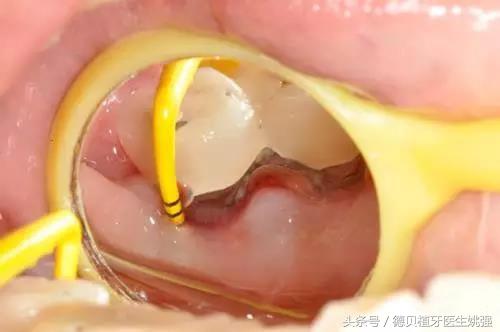
The clinical manifestation of peri-implant periodontitis is similar to periodontitis, which is asymptomatic in the early stage and can only be found on reexamination. The typical symptoms of peri-implant inflammation were mucosal redness and swelling, probing bleeding, pus discharge in the peri-implant pocket, increased probing depth and decreased osseointegration.
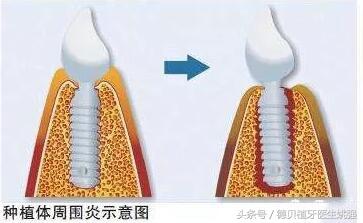
X-ray examination shows various types of bone resorption and typical symmetrical "shallow disc" (or "crater-like") bone defects. In addition, peri-implant inflammation may lead to implantation failure if it is not treated in time and effectively.
How to treat peri-implant inflammation?
Yao Qiang, a dental implant doctor in Debe, said: dealing with the surface of the infected implant and reducing the bacteria around the implant is the core of the treatment of peri-implant inflammation. The treatment of peri-implant inflammation needs to be analyzed according to the specific problems of the disease. If the dental implant can be retained according to the clinical examination, the dental plaque and dental calculi around the implant should be removed first to control inflammation.
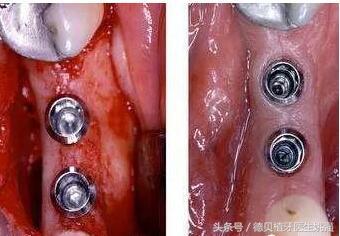
The goal of the treatment of peri-implant periodontitis is similar to that of periodontitis, that is, to achieve bone regeneration around the implant and regain bone union. Before the treatment of peri-implant inflammation, the iatrogenic factors that promote peri-implant inflammation should be checked, such as too much adhesive, too high restoration and inappropriate implant location. The possible iatrogenic factors were removed first, and then the routine treatment of peri-implant inflammation was carried out. Treatment is mainly divided into two ways: non-operative treatment and surgical treatment.
How to prevent peri-implant inflammation?
1. Oral hygiene guidance
Before the doctor carries out any treatment, give oral hygiene guidance to the customer and master the necessary oral health care knowledge.
2. Daily maintenance of oral cavity
Master effective plaque control methods and maintain good oral hygiene: soft hair, round head, toothbrush and toothpaste containing a small amount of abrasives can be used to avoid damage to the surface of the implant, and dental floss dedicated to the implant can be used to clean the adjacent surface of the denture. the focus of cleaning is on the implant-abutment connection and its surrounding soft tissue.

3. Regular follow-up examination after operation
Like our own teeth, implants need to be reviewed regularly to prevent plaque stone accumulation from causing damage to the surrounding tissue. It is recommended to revisit the guests after implantation and 1, 2, 4, 12 and 24 weeks after the installation of the restoration. During the revisit, the doctor needs to evaluate the effect of the customer's oral maintenance and put forward suggestions for improvement. At the same time, pay attention to check the function, aesthetic effect and stability of the restoration and its attachment device, which can help to judge whether the restoration needs to be removed or replaced. Professional maintenance will be carried out at least every 5-6 months.
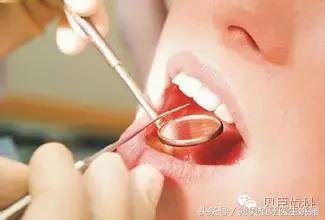
After watching the periarthritis of planting, is not the heart very shocked! Although dental implants have obvious advantages over other methods of restoration of missing teeth, there will be problems if they are not well cared for after operation. Studies have shown that the probability of peri-implant disease in patients with good compliance and periodontal maintenance as prescribed by doctors is significantly lower than that in patients with poor compliance. Therefore, everything is not once and for all, we need to take good care of it!
- Prev
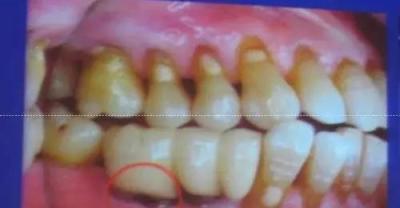
Immediate dental implant costs
How much does dental implant cost immediately in Dongguan? Teeth are very important for our health, everyone wants to have complete healthy teeth, but because of some original teeth, we can have healthy teeth.
- Next
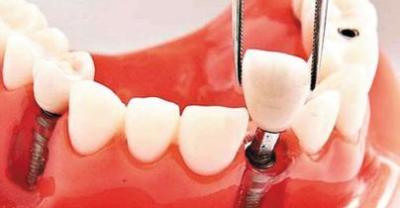
Comparison of dental implants and dentures
[1] Alveolar bone resorption does not often occur when alveolar bone is absorbed with teeth, but after tooth loss, alveolar bone resorption occurs rapidly and the jaw bone shrinks significantly. This is...
Related
- Fuxing push coffee new agricultural production and marketing class: lack of small-scale processing plants
- Jujube rice field leisure farm deep ploughing Yilan for five years to create a space for organic food and play
- Nongyu Farm-A trial of organic papaya for brave women with advanced technology
- Four points for attention in the prevention and control of diseases and insect pests of edible fungi
- How to add nutrient solution to Edible Fungi
- Is there any good way to control edible fungus mites?
- Open Inoculation Technology of Edible Fungi
- Is there any clever way to use fertilizer for edible fungus in winter?
- What agents are used to kill the pathogens of edible fungi in the mushroom shed?
- Rapid drying of Edible Fungi

